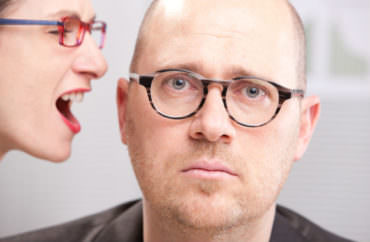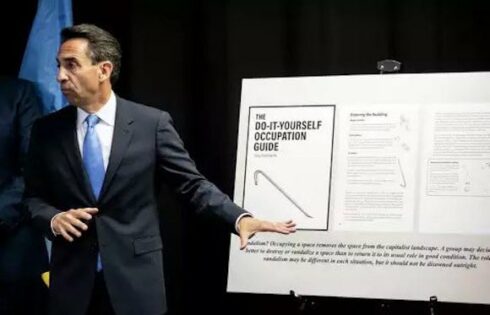
Have you ‘refused to acknowledge a core aspect of her identity’? That’s ‘misconduct’
It’s sometimes said that college campuses are the springboard for cultural practices that are still considered too radical for American society at large.
The “affirmative consent” rules for sex – which flip the burden of proof to an accused person – started on campus, and this week they are likely to be adopted by an influential legal group whose “restatements” of common law are often taken as gospel by judges.
The increasingly common policing of gender pronouns is also looking to jump from the quad to the dais, in the form of revised “professional misconduct” rules for lawyers.
UCLA Law Prof. Eugene Volokh, a First Amendment scholar, warns that the rules under consideration by state bar associations are blatantly unconstitutional and would functionally police what lawyers say in social and educational contexts, not just in the courtroom.
The American Bar Association’s “model” rule for professional misconduct explains that “discrimination and harassment” by lawyers includes “harmful verbal or physical conduct that manifests bias or prejudice towards others,” such as “unwelcome verbal … conduct of a sexual nature.” (Yes, this “unwelcome” language started on campus, too, and it’s broad enough to refer to overheard sex jokes.)
It is misconduct when lawyers know or “reasonably should know” that they are harassing or discriminating on the basis of a variety of categories, including national origin, sexual orientation and gender identity “in conduct related to the practice of law.”
And what is “related to the practice of law”? Quite a bit of a lawyer’s professional life, as it turns out – “participating in bar association, business or social activities …”
Volokh has been fighting this language since it was proposed two years ago, and in a blog post Monday, he notes that a supporter of this broad language has said exactly what it wants to be punishable.
The Arizona Supreme Court is in charge of deciding whether to adopt the ABA model rule for lawyers in the state, and in a comment submitted to the court, the LGBT rights group Lambda Legal said it wants to force lawyers to use others’ preferred gender pronouns.
It cites a case it handled from last year where a prosecuting attorney referred to a transgender woman defendant with male pronouns, outed the person as biologically male “to everyone within earshot and refused to acknowledge a core aspect of her identity.” Lambda Legal later convinced the judge to intervene when “any future misgendering or other disrespectful treatment” toward transgender people happened in her courtroom, it said.
Here’s the problem, Volokh writes: The rule goes far beyond the courtroom or even “the legal process,” where judges have wide latitude to restrict speech in the name of preventing harassment.
It would apply to continuing legal education events – mandatory for lawyers to keep their credentials – and social events like “local bar dinners.”
Imagine a CLE event structured as a debate on restroom usage based on gender identity or limiting immigration from certain Muslim-majority countries, Volokh says. If you’re arguing against such restroom usage or in favor of such immigration restrictions, that verbal behavior “”in connection with the practice of law” could be reported as “bias” that is “harmful” to certain groups.
It doesn’t even have to be directed toward a specific person. The very fact of arguing in favor of one side can be punishable by the state bar authority. According to Volokh, it would work the same at a dinner with colleagues, where any number of controversial issues might be discussed:
One of the people is offended and files a bar complaint.
This was at a “social activit[y] in connection with the practice of law.” The state bar, if it adopts this rule, might thus discipline you for your “harassment.” And, of course, the speech restrictions are overtly viewpoint-based: If you express pro-equality viewpoints, you’re fine; if you express the contrary viewpoints, you’re risking disciplinary action. …
[E]ven a solo practitioner could face discipline because something that he said at a law-related function offended someone employed by some other law firm.
Now use Lamdba Legal’s scenario and imagine you’re at a CLE on transgender rights, or discussing the issue at a social event, and you refer to a transgender woman – even accidentally – as “he.” Volokh says the only non-punishable option is to “go along with the pronoun orthodoxy.”
Make sure to listen carefully when every new person in the group – or perhaps someone you know who has recently transitioned to a different identity – tells you their gender pronouns. Your license to practice law may depend on it.
MORE: This public university offered to let 11-year-olds identify as ‘zie’
IMAGE: Giulio Fornasar/Shutterstock
Like The College Fix on Facebook / Follow us on Twitter







Please join the conversation about our stories on Facebook, Twitter, Instagram, Reddit, MeWe, Rumble, Gab, Minds and Gettr.